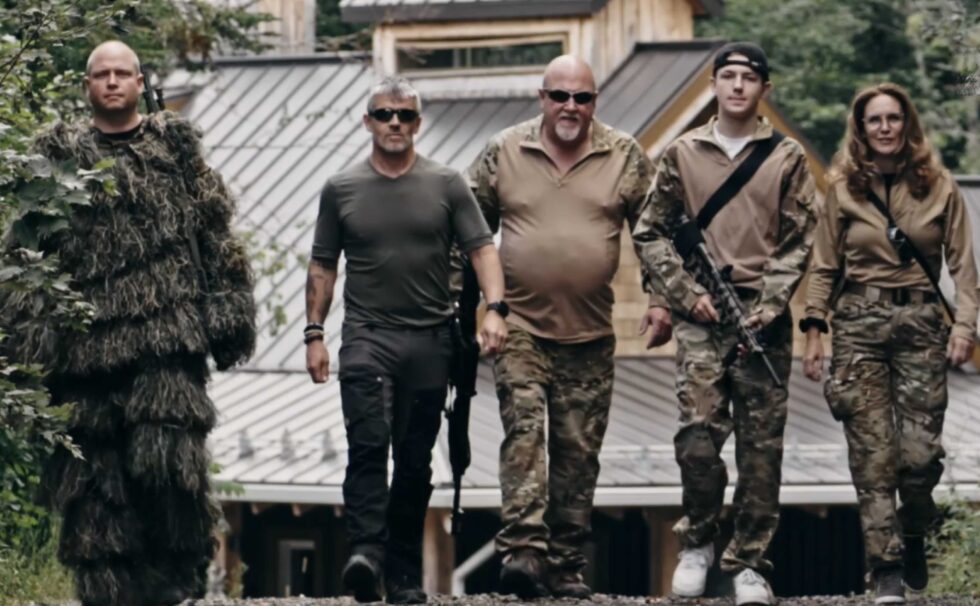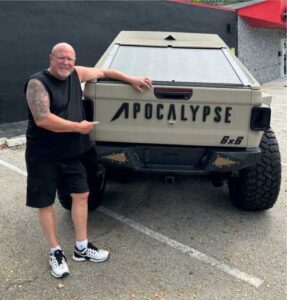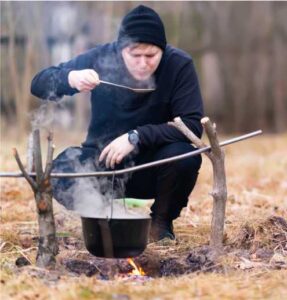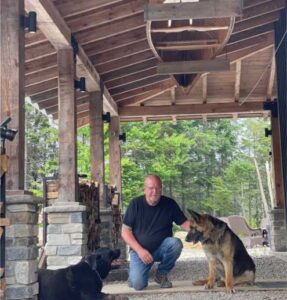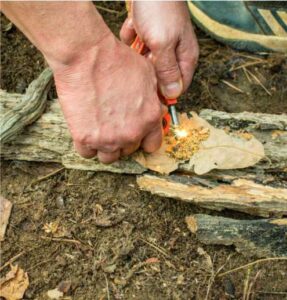By Daniel Daignault | Société

Whether one is a climate skeptic or not, it must be acknowledged that all the events that have occurred, just this year, are at the very least concerning. Wildfires, floods, tornadoes, torrential rains, intense heat, power outages, we have experienced them, and everything suggests that things will not improve.
"On Saturday, August 26th, for example, more than a million Hydro-Québec customers were without electricity. A local outage, as we have also had localized flooding and tornado events, and episodes of rain that have contributed to ruining crops. In other parts of the country, there have been droughts like never before, and that's not to mention all the other events that can occur. All this means that being a self-sufficient citizen is important. Unfortunately, most people don't have much self-sufficiency," confides Benoit, a well-known survivalist, notably for his participation in the documentary series. Survivalistes hosted by Patrice Godin, his YouTube videos, and the numerous interviews he has given to various media over the years. "I know a bit about it, quite a lot," he says. "I don't expect people to want to be like me, but if I can awaken them and inspire them to become a little self-sufficient, raise their awareness, and give them advice, that will be a good thing."
An ice storm that changed everything
It has been since the ice storm crisis in 1998 that Benoit realized the importance of being prepared to face all possible situations. Gradually, he took measures and made purchases to become self-sufficient in case of another ice storm, a snowstorm, a major power outage, a natural disaster, or any other event. Such situations would leave many Quebecers destitute and struggling to meet their basic needs.
"The idea is to be self-sufficient during a small crisis at the moment, whether it's for several days, a week, or two. For a major crisis, which still happens rarely, not everyone has to be one hundred percent self-sufficient. Last year, for example, we were without electricity for nine days. What happens then? In the Laurentians, many people have wells, so there's no water for drinking, for washing. Second problem, your refrigerator stops working, your freezer defrosts, and you have no light in the evening. It's not going well. It happened twice in the Laurentians in the summer of 2022, and faced with such a situation, I see a lot of people who are not prepared. The most serious event that can happen in Quebec, or in America, is to be without electricity. Especially in winter. Everything else remains local events," he says.
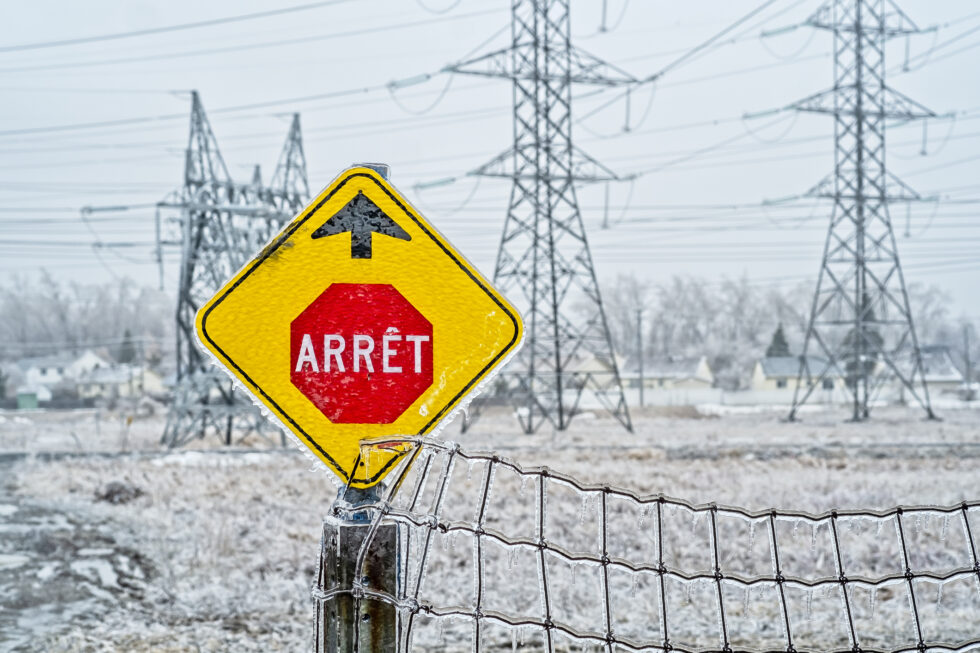
Important to know
So what are the important things to know and, more importantly, to do, according to him, to prepare for a power outage? "There's no banking service, so debit and credit cards won't work anymore. You need to have cash on hand, at home, and I also suggest having some in your car. Even if you have a million dollars in your account, you won't be able to access it. Also, if you need to buy things, because some businesses might be open, but only for people who can pay cash, you'll be glad to have money in your pockets. The whole system collapses, if among other things you can't put gas in your car, if you don't have a good supply of water at home, candles or battery lamps for lighting, and dry food supplies, like pasta and canned goods, for example. You're stuck and things are likely to be difficult if you don't have basic equipment."
"People insure their homes against theft and fire, they insure their cars against accidents and collisions, they take out life insurance, they insure everything, but they don't insure their comfort," he says. "Most people who want to get a generator when there's a power outage can no longer find one, just like those who will realize that having a small gas stove at home, which we use for example when camping, would have been very useful. Last spring, we had a period of ice, but we were absolutely lucky because there were no strong winds to bring down branches and trees, and it didn't snow, the heavy sticky snow, on the electrical wires on which ice had settled. It didn't happen, the wind was nil, the sun came out and the ice melted. But it could have been worse, there could have been millions of subscribers without electricity. People don't realize that, what could happen."
As he puts it so well, everyone can manage without electricity for three days in the summer, but in the summer, let's say it's less alarming. "We make do with the barbecue and we can still sleep well. But at -30 degrees Celsius, it's another story, you'll find that the house cools down quickly. In Montreal, we no longer have the right to have a fireplace, which is quite incredible that we remove the right to have the primary source of heat, because of pollution. When you think about it, we've had wildfires, just this year, that amount to 100,000 years of fireplace fires!"
We will undoubtedly have the opportunity to come back to this, but it is important to be, as Benoit confides, a self-sufficient citizen capable of managing in the event of, among other things, a power outage. But the worst could happen. "We have never been so close to a nuclear war, and on October 8th, there will be a general alert on phones in the United States. Everyone – 350 million citizens – will receive a message as if there were a nuclear attack. It will be the first test of its kind, and it needs to be prepared for, because it could happen. It's not against war that we need to prepare, but rather against an event. A cyberattack, for example."
**All translations are made from the original article written in French.
